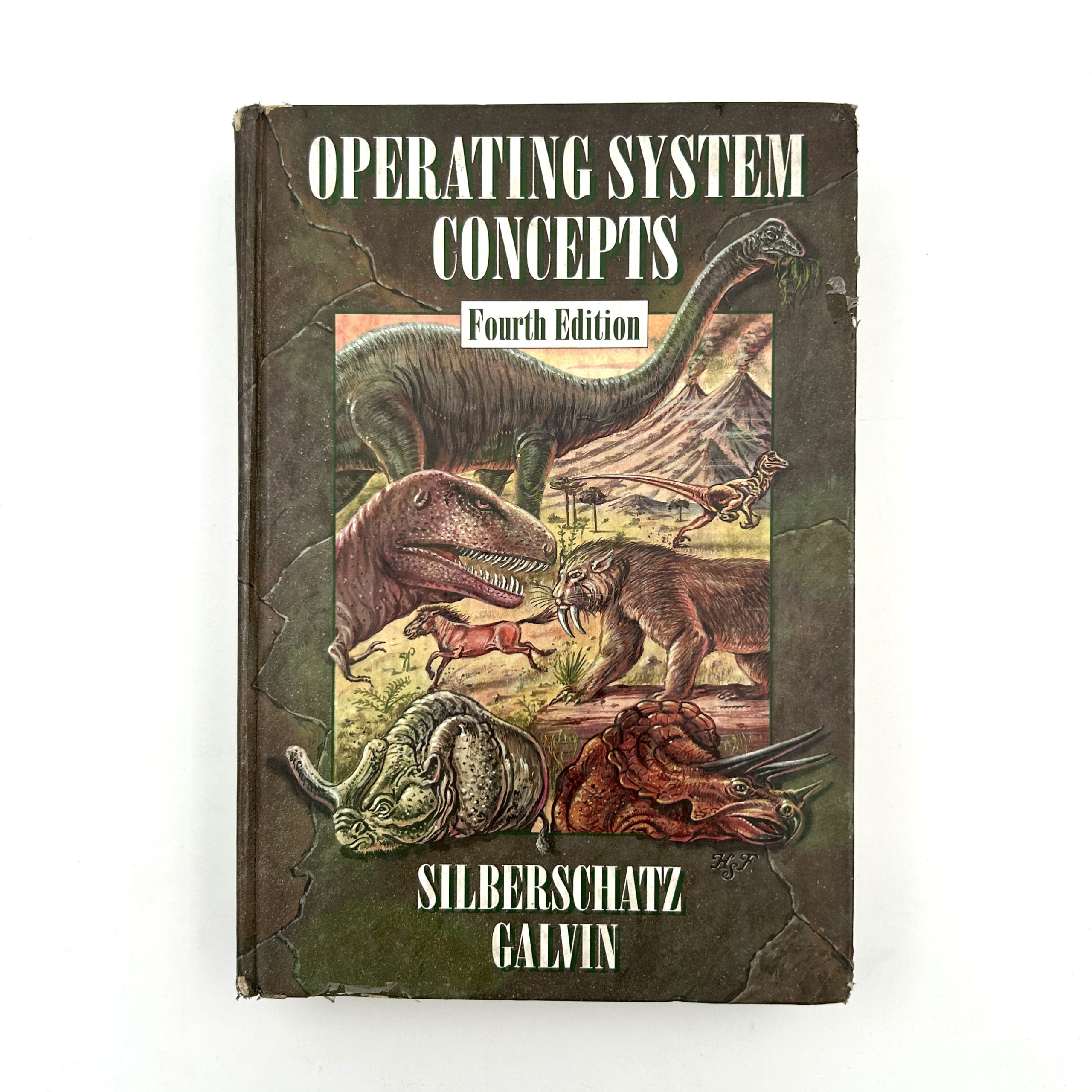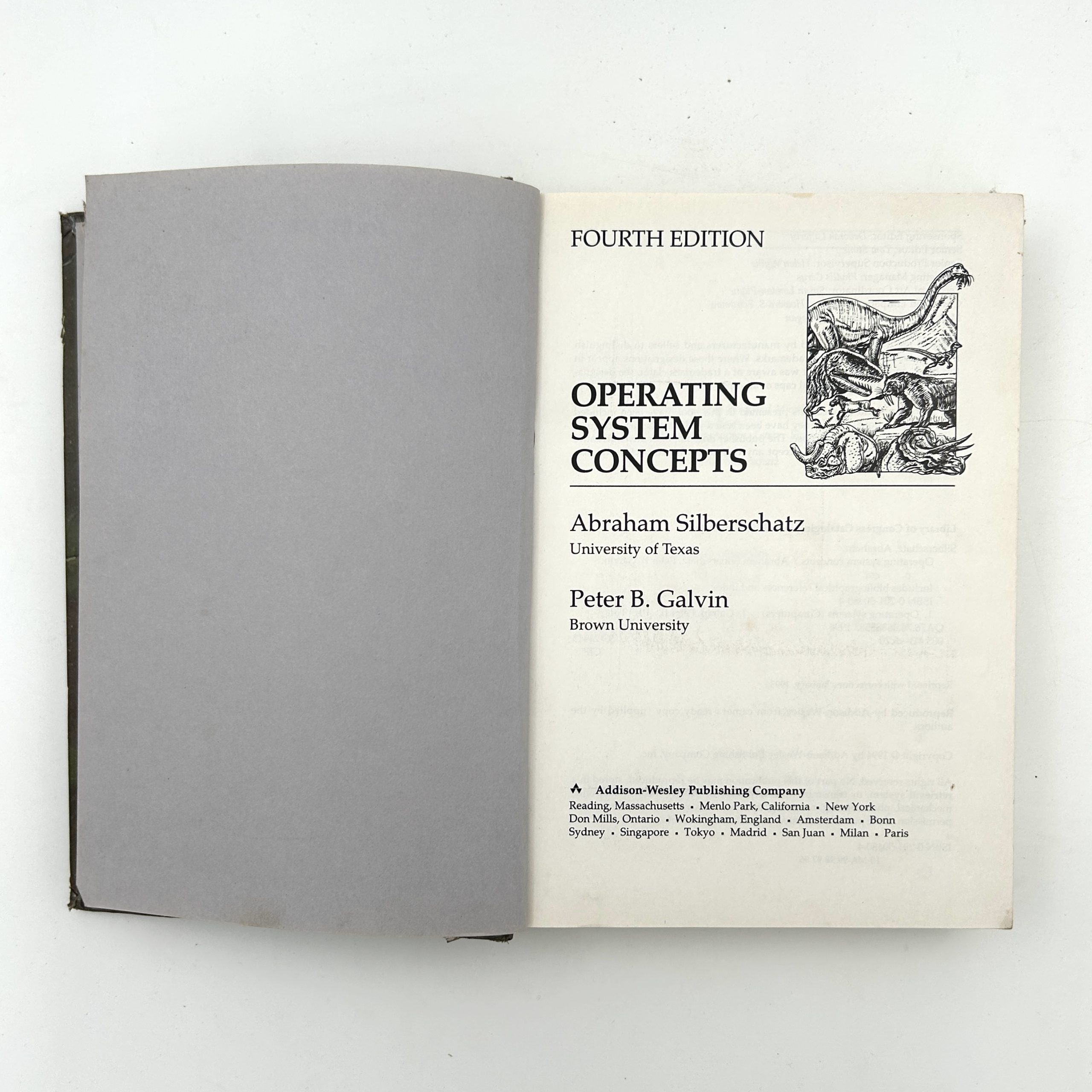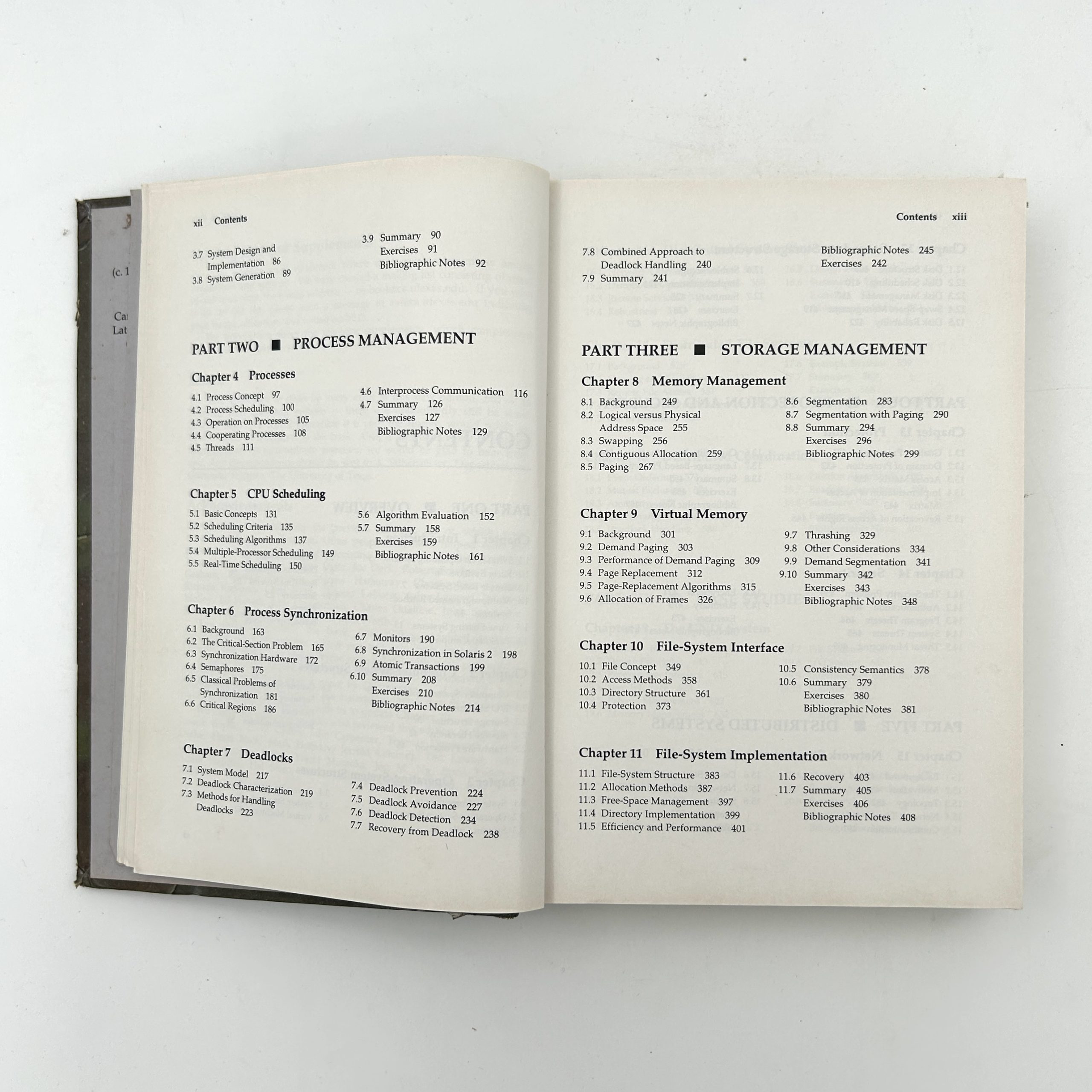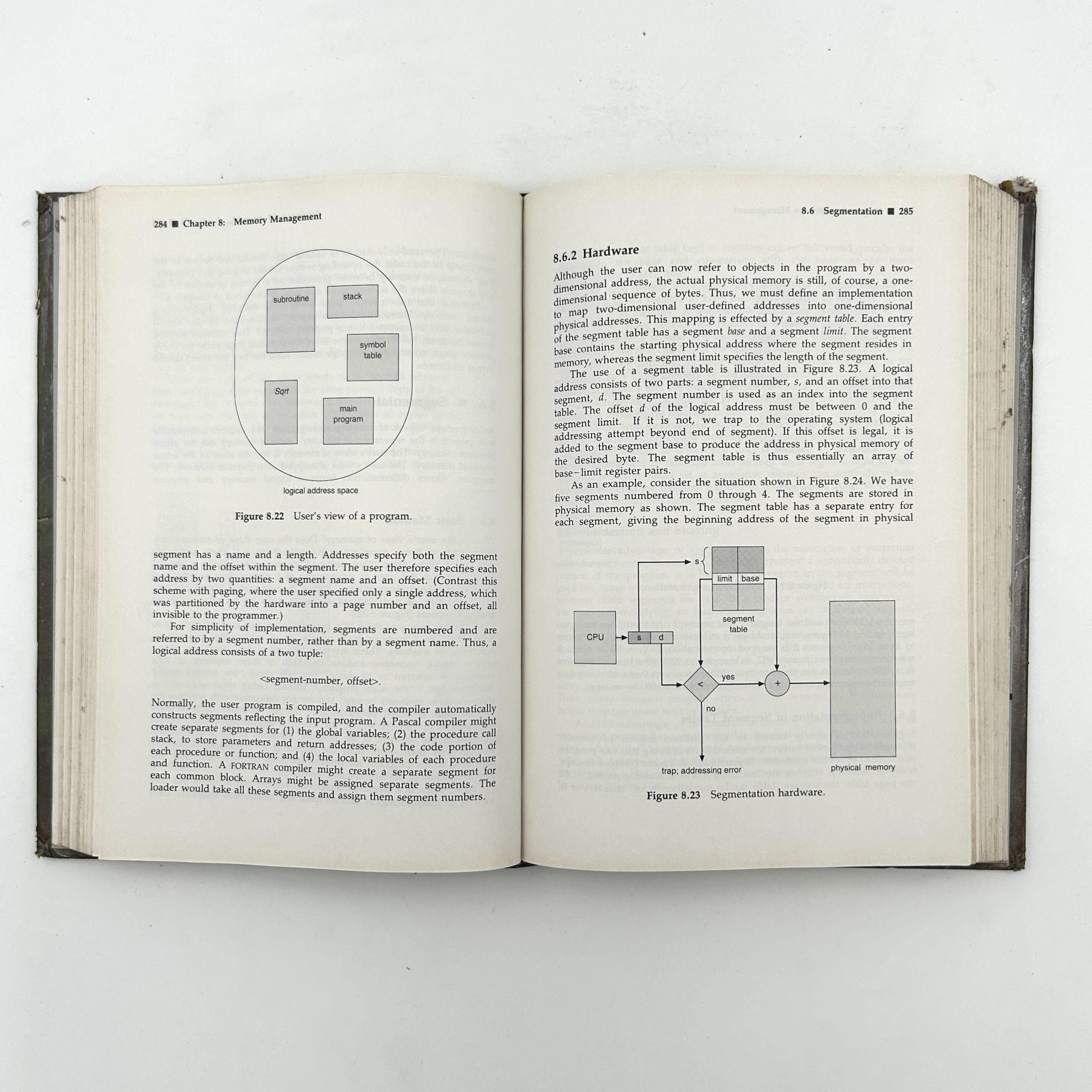Operating System Concepts
by Abraham Silberschatz, Peter B. Galvin
(Published by Addison-Wesley Publishing Company, Fourth Edition 1994, 780 Pages)
Operating System Concepts by Silberschatz and Galvin is a highly regarded textbook that serves as an authoritative guide to the fundamental principles of operating systems. The Fourth Edition (1994) provides an updated and structured approach to understanding how modern operating systems function, from basic system structures to advanced distributed computing models.
The book begins by explaining what an operating system is and its role in managing hardware and software resources. It then moves on to discuss processes, threads, CPU scheduling, deadlocks, and synchronization mechanisms, which are crucial for efficient system performance. Memory management is extensively covered, including topics like paging, segmentation, and virtual memory.
File systems, input/output management, and security mechanisms are also discussed in detail, providing insights into how modern operating systems ensure data integrity and efficient resource utilization. The book also explores distributed operating systems, real-time computing, and parallel processing, making it highly relevant for both academic learning and practical application.
Known for its clarity, structured approach, and well-explained examples, this book is widely adopted as a standard reference in computer science courses and is essential for anyone looking to build a strong foundation in operating system design and implementation.
- A structured and in-depth exploration of core operating system concepts.
- Covers process synchronization, CPU scheduling, memory management, and file systems.
- Discusses advanced topics such as distributed systems, security, and real-time systems.
- Includes diagrams, real-world examples, and case studies for better understanding.
- Widely used as a textbook in universities and technical courses worldwide.














Reviews
There are no reviews yet.